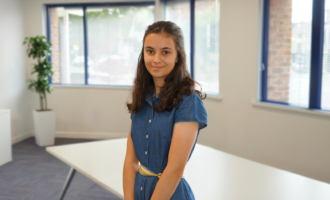The Chancellor recently outlined a brand new tax measure in his March Budget announcement. The ‘super deduction’ is designed to help businesses save on tax when they purchase certain plant and machinery, and is part of the government’s drive to kick start the economy, and to encourage investment. Rishi Sunak has called it “The biggest two-year business tax cut in modern British history.”
The capital allowance scheme lets companies claim a 130% first year capital allowance on the purchase of certain plant and machinery needed for their business. It runs from 1 April 2021 to 31 March 2023 and is uncapped, so there is no restriction on the amount that a business can spend in order to claim the tax break. Superficially, this looks like the biggest firms, like Amazon and BT who have large budgets for warehouse equipment, large-scale infrastructure and other technology will be the biggest beneficiaries, but with good advice smaller firms can benefit too.
How does it work?
Capital allowances let taxpayers obtain tax relief on the cost of certain capital. They take the place of accounting depreciation, which is not normally tax deductible. Businesses deduct capital allowances when computing their taxable profits. The 130% super deduction means that with the current corporation tax of 19%, a business will receive £24,700 of tax relief for every £100,000 they spend.
When to use the super deduction
Although there is no cap to the allowance, it can only be used within the two year period, starting in April 2021. Businesses with a long term investment plan of over £1 million per year should consider moving this forward to make use of the super deduction before the corporation tax rate goes up in April 2023.
However – there are a few things to bear in mind. Firstly, as has been widely publicised, corporation tax will go up in April 2023 from its current level of 19% to 25%. If a business waited until them to make a £100,000 purchase they would be able to claim a capital allowance tax reduction of £25,000, a difference of only £300 from the super deduction saving. Secondly, if the Annual Investment Allowance of £1 million is reduced in the next couple of years, as many commentators have predicted, that may undo the benefits of waiting to make a purchase. And finally, it is worth remembering that when the asset is sold, if the super deduction was claimed then the proceeds received on the sale will also need to be uplifted by 130%.
Most businesses can apply for the super deduction scheme, with the exception of:
- Partnerships and LLPs such as solicitors, accountants and architects
- Landlords investing in the construction of new buildings or the refurbishment of existing properties
- Other businesses who do not pay corporation tax
- Sole traders
What is included in the list of plant and machinery
- New (not second hand) machinery needed to manufacture your product or deliver your service
- Electronic equipment including computers, servers and other IT devices
- Vehicles that are used exclusively for your business, such as vans, lorries, construction and agricultural equipment
- Office equipment including desks, chairs and other office furniture
- Some equipment used to generate energy such as solar panels or electric charge points for vehicles
- Tools and equipment, from smaller kit such as drills, lathes and grinders to larger equipment like pumps, cranes, ploughs and sprayers
- In specific circumstances, the cost of dismantling and destroying existing plant and machinery
What isn’t included in the super deduction
- Equipment that was ordered before 31 March 2021 but which will be delivered after that date
- Equipment to be installed in buildings that are then leased out, such as air conditioning units in rented properties
- Buildings and structures
- Most cars
It’s also worth noting that if a business buys plant and machinery using the super deduction scheme and then sells it on within a couple of years, they will have to pay back the tax saving to HMRC.
Whilst any measures to stimulate the post-pandemic economy are broadly welcomed, if you are thinking of making a plant or machinery business purchase it may be worthwhile talking to a specialist tax adviser to weigh up the advantages and disadvantages of this new scheme, and who can talk through with you the best ways of improving the profitability of your business.







